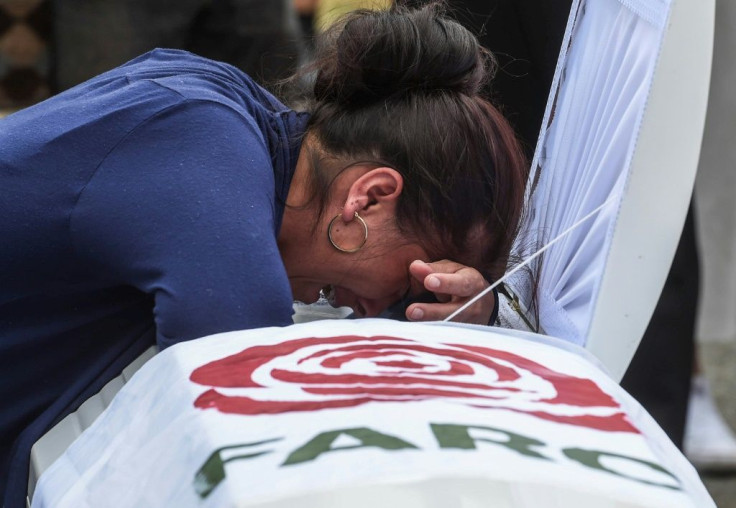2019 Deadliest Year For Colombia's Ex-FARC Combatants: UN

The past year has been the deadliest for ex-FARC combatants in Colombia since the former guerrilla movement signed a peace agreement with the government in 2016, the UN reported Tuesday.
The UN verification mission in Colombia, responsible for monitoring the accord which ended more than 50 years of conflict, expressed alarm at the mounting number of deaths. It said 77 ex-guerrillas had been murdered over the past 12 months.
In the mission's end-of-year report, UN Secretary-General Antonio Guterres called for "more effective measures to protect the lives of former combatants, particularly considering that 2019 has been the most violent year for former FARC members since the signing of the peace agreement.
"Family members, including children, of former combatants killed since the signing are facing particular vulnerabilities; specific measures should be considered to support them," Guterres said.
In a radio interview Tuesday, President Ivan Duque expressed concern about the murders, saying, "the tools of denunciation and protection must be improved."
The total of 77 deaths in 2019 surpasses the 65 murders recorded in 2018 and the 31 in 2017.
"The total number of killings has now reached 173, in addition to 14 disappearances and 29 attempted homicides," it said.
The UN cited figures from local authorities indicating that 80 percent of the attacks are related to criminal groups and organizations linked to drug trafficking and illegal mining.
"There are still challenges regarding the dismantling of the structures behind these murders," the report said.
It noted that only nine of the 67 suspects arrested are considered to have been the planners of the attacks.
Guterres will present the report to the UN Security Council.
FARC, the Revolutionary Armed Forces of Colombia, transformed itself into a political party after some 7,000 former combatants disarmed as part of the peace agreement.
But dissident members who rejected the deal, along with other armed groups, continue to threaten the peace deal, particularly in remote areas.
As these organized crime groups seek greater control of territory vacated by the FARC, they often see ex-combatants and community leaders as their enemies.
"The vast majority of former FARC combatants continue to make efforts to reintegrate into civilian life and remain committed to the peace process, despite continued uncertainties and attacks against them," the UN report said.
It also expressed concern about the number of killings of human rights activists and community leaders, 86 in the past year alone.
Since the signing of the peace deal in November 2016, 303 activists have been murdered, including 12 women, the report said.
vel/lv/ll/db/bbk
© Copyright AFP 2024. All rights reserved.





















